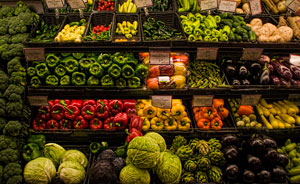There is no such thing as an average consumer. The choices we make are shaped by our means, aspirations and priorities. We all give different weight to price, quality, convenience and ethical considerations.

How much do you know about the food you buy?
But it is impossible for us to evaluate all the products we buy and something we all share is that, ultimately, our choices are made on the strength of imperfect information – in short – on trust.
Nowhere perhaps is that trust more important to us than in the food we buy for ourselves and our families. We trust that the food is safe, healthy and, increasingly, that it is not produced at the expense of other people or the environment. The growing importance of this to consumers everywhere is reflected in the response of corporations anxious to reassure consumers that their food is both natural and ethical. Images of green fields and smiling farmers abound.
How transparent is the global food chain?
Yet, in reality, as recent Consumers International research has shown, the global supply chains of large supermarkets and food companies fail to take sufficient responsibility for social and environmental conditions.
A common argument is that companies who seek a positive social and environmental impact may be at a commercial disadvantage. The real problem is that most companies have not done enough to be transparent about where our food comes from.
That is at odds with the way they present themselves to consumers. Whether interpreted as a failure of due diligence or deliberate misrepresentation, there are questions to answer here about the abuse of power for commercial gain.
It is in the nature of business to respond to the priorities of its customers in order to succeed – or at least to look as if they have done so. In reality of course, the boundaries between positive spin and false claims are blurred.
Consumers are increasingly aware of this and want to know that marketing claims are truthful and substantiated.
Food labelling and the right to know
The proliferation of certifications and corresponding labels on product packaging is one response to the demand for information, but this has also resulted in further confusion. Consumers need clear and accurate information backed up by independent verification, traceability and transparency and assurance that the organisation making the claim is accountable for it.
Some work has been done on guidance for business. Consumers International contributed to the development of ISO 26000, a new international standard on social responsibility that sets out how organisations claiming to be socially responsible in their working practices can give clear and comparable feedback to consumers. Another example is the guidance issued by the Federal Trade Commission in the ‘Green Guides’ issued this year.
The fact remains, however, that companies are not required to be fully transparent and this allows misrepresentation to occur.
The ‘right to know’ is a key issue for the consumer rights movement. Alongside campaigning for higher standards and greater transparency, the very practical approach of providing consumers with comparative information on products has long been an important activity for consumer organisations, and one that gives them significant influence in the market.
Even where a company’s practice is poor, transparency is the first step towards accountability and improvement. But, there is resounding silence from companies on this. Some simply refuse to engage on the issue of corporate responsibility. Others might have made progress but still fear criticism for not having done enough. CI’s own research into the global supply chains of large supermarkets and food companies found a pervasive failure to take sufficient responsibility for social and environmental conditions.
Compiling this report, it was hard to get more information than what is in generalised company reports. ‘Commercial confidentiality’ was an added obstruction that made tracing a supply chain from producer to retailer all but impossible.
Add to the mix suppliers’ fear of retaliation from more powerful business partners and the protective wall around the company’s image and reputation is complete.
Read Transparency International’s post on Consumers International’s blog here.















 Connect with us on Facebook
Connect with us on Facebook Follow us on Twitter
Follow us on Twitter